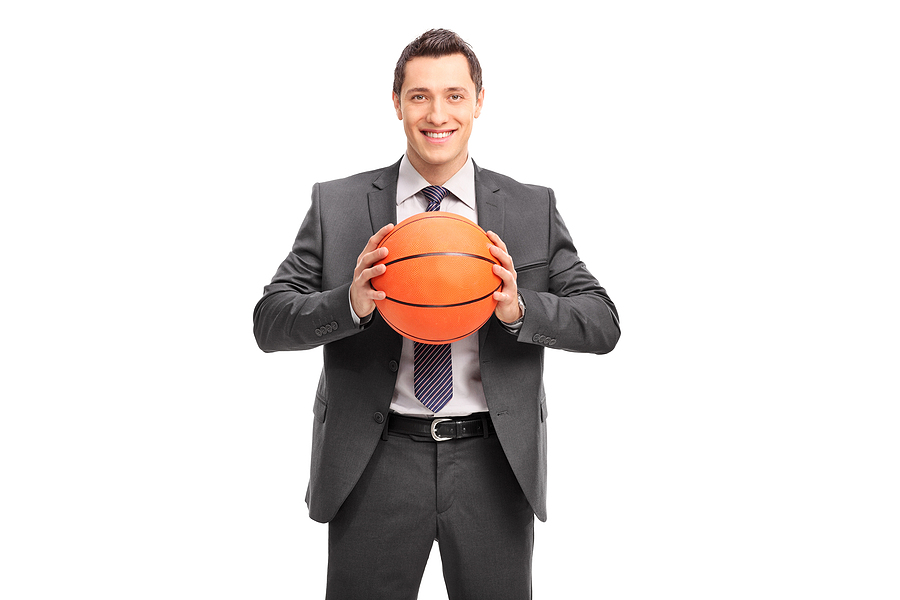Leveraging Your Mental Health Background for a Career in Sports Psychology
Sports psychology is an exciting mental health field focused on helping athletes reach peak performance. Whether you are a clinical psychologist, counselor, or social worker, transitioning to sports psychology can open up new career opportunities where you can help athletes and teams improve their mental resilience, performance, and well-being. With the right training and strategic approach, professionals from traditional mental health fields can leverage their experience to build a rewarding career in sports psychology.

The Role of a Sports Psychologist
Before making the transition, it's essential to understand the core functions of a sports psychologist. These professionals work with athletes, coaches, and teams to address a variety of mental health and performance-related issues. Typical responsibilities include helping athletes manage anxiety, overcome mental blocks, set goals, and improve focus and motivation. Sports psychologists also deal with stress management, team dynamics, recovery from injury, and career transitions.
This role extends beyond clinical work—sports psychologists are often consultants who design mental conditioning programs, provide workshops, and collaborate with coaches to optimize performance strategies. They may work in settings ranging from high schools and colleges to professional sports teams and private practice.
Why Your Mental Health Experience Matters
If you already have a background in a mental health field, such as clinical or counseling psychology, marriage and family therapy, or social work, you have a strong foundation for transitioning into sports psychology. Many of the skills used in traditional therapy settings, such as active listening, empathy, and cognitive-behavioral interventions, directly apply to working with athletes. Experience in stress management, trauma treatment, and motivational interviewing can also translate well into sports psychology settings.
However, a key difference is the focus on performance and optimizing mental strategies for success, rather than solely addressing psychological issues. This means you will need to supplement your existing skill set with specialized knowledge of sports psychology principles, athlete mental health, and the unique culture of sports.
Graduate Certificates in Sports Psychology
One of the quickest and most targeted ways to transition into sports psychology is by pursuing a graduate certificate in sports psychology. These certificate programs are typically designed for professionals who already have a master's or doctoral degree in a mental health field. They provide advanced training on the psychological aspects of sport and performance without requiring a full second degree.
Graduate certificate programs cover topics such as:
- Mental Skills Training: Techniques for enhancing focus, concentration, and mental toughness in athletes.
- Sports Performance Assessment: Tools and methodologies for evaluating the mental aspects of athletic performance.
- Motivation and Team Dynamics: Understanding what drives athletes and how to cultivate effective team communication.
- Injury Rehabilitation Psychology: Supporting athletes through the psychological challenges of recovery from physical injury.
These programs are often available online or part-time, making them accessible for working professionals. Completing a certificate program can bolster your credentials and help demonstrate your competence to potential employers in sports settings.
Degree Pathways for a Career in Sports Psychology
For those looking to deepen their expertise, a master's or doctoral degree in sports psychology or a related field can be a strong investment. Degree pathways vary based on your current education level and professional goals:
Master's Degree in Sports Psychology
If you have a bachelor's degree and are looking to build a career specifically in sports psychology, earning a Master's in Sports Psychology or Master's in Applied Sports Psychology can provide a solid grounding. These programs typically take two years to complete and focus on performance enhancement, counseling skills, and the mental health needs of athletes. Some programs may also offer dual degrees that combine clinical mental health counseling and sports psychology, which can be ideal if you wish to maintain clinical practice options.
Doctoral Degree in Clinical or Counseling Psychology with a Focus on Sports Psychology
For licensed psychologists or those pursuing licensure, a Ph.D. or Psy.D. in Clinical or Counseling Psychology with a concentration or elective coursework in sports psychology can be an effective route. This allows you to maintain a broad clinical skill set while gaining expertise in working with athletes. Alternatively, a Ph.D. in Sports Psychology specifically focuses on the research and theoretical aspects of sports performance and athlete development.
Gaining Practical Experience in Sports Psychology
In addition to formal education, gaining hands-on experience is essential for building credibility and competence in sports psychology. Consider seeking out internships, volunteer opportunities, or part-time work with local sports teams, athletic clubs, or community programs. Working under the supervision of a sports psychologist, if possible, can provide valuable mentorship and a deeper understanding of the field.
Another option is to offer mental skills training workshops or mindfulness sessions to athletes or teams in your community. Even small-scale initiatives can help you build a portfolio and demonstrate your capability in working with this unique population.
Becoming Certified in Sports Psychology
While sports psychology certification is not always required, it can enhance your professional standing. One recognized credential is the Certified Mental Performance Consultant (CMPC) from the Association for Applied Sport Psychology (AASP). This certification is ideal for professionals who want to specialize in mental performance coaching and is often sought by those working with elite athletes.
To earn the CMPC, you must complete a master's or doctoral degree, gain supervised experience in sports psychology, and pass a comprehensive exam. Having this certification can set you apart in the field and build trust with clients and organizations.
Final Thoughts
Transitioning into sports psychology from a traditional mental health career is a viable and rewarding option for those looking to combine their clinical expertise with a passion for sports and performance. With the right additional training, certifications, and hands-on experience, mental health professionals can leverage their existing skill sets to support athletes in achieving peak performance and psychological well-being. Whether through a graduate certificate, advanced degree, or on-the-job learning, this specialized field offers a dynamic and impactful career path for those eager to work at the intersection of psychology and sports.


- Cheapest Sports Psychology Programs in 2025 - April 16, 2025
- From Athlete to Sports Psychologist: How Former Competitors Can Build a Career in Performance Psychology - April 2, 2025
- How to Land an Internship in Sports Psychology - February 26, 2025

